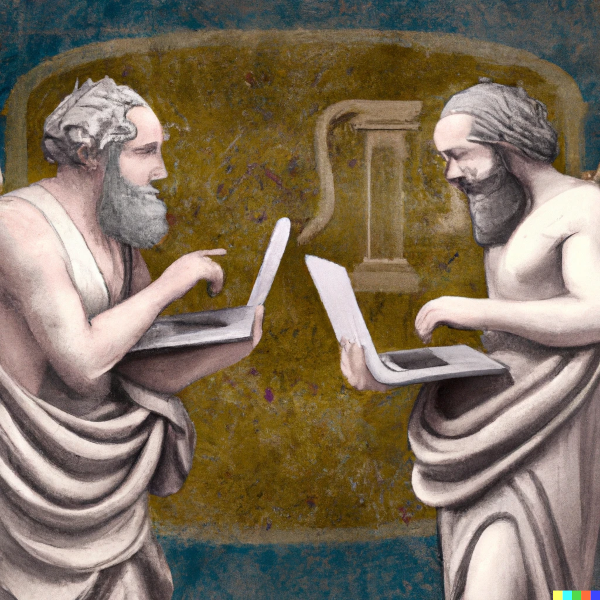Socratic Bot
This is a follow-up from my earlier post.
This is really entertaining. It is also depressingly addictive. Self-indulging as well: what a luxury it is to be able to engage in a polite, seemingly rationale discussion with s̶o̶m̶e̶o̶n̶e̶ ̶w̶h̶o̶ something that can reply almost instantly to each point, yet can wait with an infinite patience for my responses.
It also is a great support for fictional Socratic dialogues(*) - a very effective medium to convey philosophical ideas by guiding a student to reach the conclusion through their own reasoning. I used it with ChatGPT to talk about “regulatory narrow focus” which is an issue I have been looking in for a very long time.



